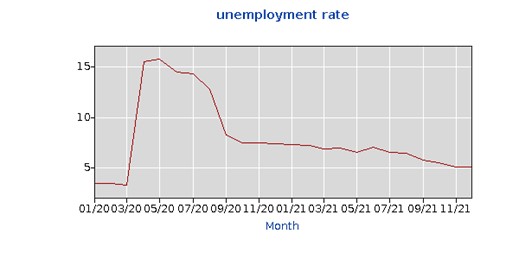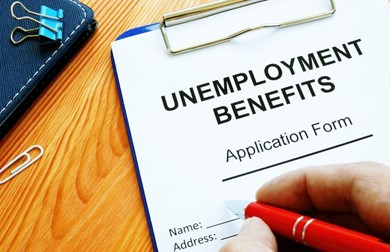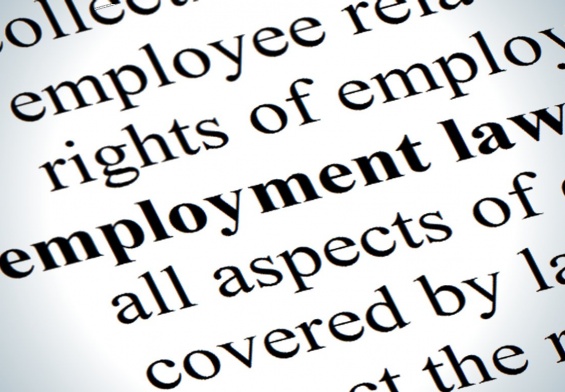Job Offer Rescinded? New Jersey Expands Unemployment Eligibility
By: Tom Daly, Jennifer Weitz, Esq. and Ty Hyderally, Esq.
The New Jersey Legislature recently introduced a bill to amend the state’s Unemployment Compensation Law, specifically, the law’s “disqualification for benefits” section. N.J.S.A. §§ 43:21-1; 43:21-5(a).
Current Statute:
Currently, individuals who leave their employers “voluntarily” and “without good cause” are disqualified from receiving unemployment benefits until the individual becomes reemployed for eight weeks earning at least ten times the individual’s weekly benefit rate. N.J.S.A. § 43:21-5(a). This disqualification does not apply to individuals who leave work voluntarily to accept work with another employer, provided that the new employment commences within seven days after the individual’s departure and has weekly hours or pay not less than the hours or pay of the employment of the first employer. Id. If the original employer terminates the individual prior to the notice of leave date, then the seven-day period will commence from the specified notice of leave date. Id.
Proposed Amendment:
S1606 was introduced to the Senate Labor Committee on February 14, 2022, and proposes two major amendments to the standing law. S. 1606, 220th Leg. (2022). The bill permits an employee to receive unemployment benefits if the employee leaves employment upon receipt of an offer of employment from another employer, but the offer is rescinded through no fault of the employee. Id. The bill also, for purposes of benefit eligibility, increases the maximum time period between when the employee leaves work and when the subsequent work is scheduled to commence from seven days to ten days. Id.
Common Law Catalyst:
The intention of this bill is to codify the holdings of the New Jersey Supreme Court in McClain v. Bd. of Review, Dep’t of Labor, 237 N.J. 445 (2019).
In McClain, the Court consolidated appeals from two individuals who had each accepted an offer of employment from a second employer only to have the offer rescinded before the start date — leaving each of them jobless. Both individuals filed for unemployment insurance benefits with the New Jersey Department of Labor and both claims were denied. The question before the Court was whether in such a circumstance, the employee, whose offer is rescinded through no fault of their own, is entitled to unemployment benefits pursuant to N.J.S.A. 43:21-5(a).
The Court noted two Appellate Division panels had reached entirely different answers to that question based on divergent interpretations of N.J.S.A. 43:21-5(a). The first panel concluded that the acceptance of an offer of employment to commence within seven days after leaving the first employer — not the actual start of new employment — triggers the unemployment insurance benefit protections of N.J.S.A. 43:21-5(a). McClain v. Bd. of Review, 451 N.J. Super. 461, 464-65 (App. Div. 2017). The second panel concluded that the employee must actually begin working for the second employer within the seven-day period to be entitled to unemployment insurance benefits. Blake v. Bd. of Review, 452 N.J. Super. 7, 11 (App. Div. 2017). The Court thought both holdings were the result of plausible interpretation of the statute, but that only the McClain panel’s interpretation was consistent with the remedial purposes of the New Jersey Unemployment Compensation Law, an Act which the Court has “construed liberally in favor of allowance of benefits.” McClain, 237 N.J. at 451, (quoting Yardville Supply Co. v. Bd. of Review, 114 N.J. 371, 374 (1989)). The Court concluded that the employees in both cases had earned the right to unemployment insurance benefits.
Conclusion:
In McClain, the New Jersey Supreme Court underscored the importance of upholding the Legislature’s intent behind the Act and emphasized that the Court views the Unemployment Compensation Law as “social legislation that provides financial assistance to eligible workers suffering the distress and dislocation caused by unemployment.” Utley v. Board of Review, Dep’t of Labor, 194 N.J. 534, 543 (2008). The essential objective of the Act “is to provide some income for the worker earning nothing, because he is out of work through no fault or act of his own.” Id.
Since the pandemic began, many New Jersey Residents have lost their jobs or seen a reduction in hours, resulting in a sharp increase in unemployment benefit claims. While the unemployment rate has almost returned to its pre-pandemic level, many claims are backed up, some people are still waiting on money, and in some instances, people were even overpaid.

New Jersey Unemployment Rate, 1/2020 – 11/2021, https://data.bls.gov/pdq/SurveyOutputServlet.
The pandemic also caused many state unemployment offices to stop in person appointments, causing additional strain on an already overloaded electronic system. New Jersey State Senators have renewed calls for reopening these offices for in person appointments, and a have proposed that the personal pay of the department’s top leadership should be cut and used for a new fund for unemployed workers. https://www.insidernj.com/press-release/first-legislative-district-team-introduces-bills-require-reopening-njdol-unemployment-offices-cut-top-leaders-pay/.
To read the full text of S1606, click here: https://legiscan.com/NJ/text/S1606/2022.
For more information on New Jersey unemployment insurance claims, click here: https://www.nj.gov/labor/myunemployment/.
For the latest schedule for certifying benefits by social security number, click here: https://www.nj.gov/labor/myunemployment/schedule.shtml.
To file a new claim, or to reopen an existing claim, click here: https://www.nj.gov/labor/myunemployment/before/about/howtoapply/applyonline.shtml.




